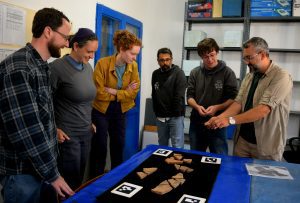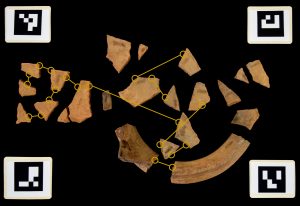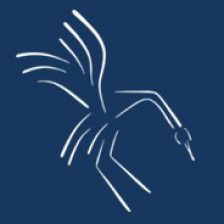Reposted from COSNEWS, June 6, 2022.
The time-consuming process of piecing together broken pottery vessels found during archaeological excavations is getting a boost from artificial intelligence.
Pottery provides key insights into how ancient people lived, but most archaeological sites uncover pottery in broken sherds. To use this evidence to its full potential requires piecing them back together like a jigsaw puzzle to figure out how the vessels were made and used, explains UCF Anthropology Associate Professor Scott Branting, Ph.D.

Improving the accuracy and speed of this reconstruction is the goal of an international collaboration between UCF and mathematicians and computer scientists at the Université du Québec à Trois-Rivières (UQTR).
UQTR Professor of Mathematics Alain Goupil, Ph.D., pitched artificial intelligence to reconstruct pottery in 2018 after visiting Kerkenes, an important Iron Age “megacity” in the central Turkish province of Yozgat. Kerkenes is the focus of a broader international archaeological project directed by Branting. Goupil was astounded by the complexity of the process of reconstructing pottery vessels, particularly those with many missing pieces.
UQTR graduate student Étienne Beaulac, working with Goupil and Professor of Computer Science Fadel Toure, Ph.D. spent the last two years developing a solution to this problem using artificial intelligence.
“Research revealed shortcomings in the existing deep learning methods used for object reconstruction,” said Beaulac. “Using Siamese Convolutional Neural Networks proved to be an elegant solution to this vexing problem.”

The current accuracy rate for identifying adjoining sherds using AI is 98.3%. The team at UQTR expects to advance these methods from 2D pictures of the pieces of the objects to 3D scans in future years. Goupil notes there are broader applications to this object reconstruction technology in areas like forensic science.
Assistant Director of the Kerkenes Project, doctoral candidate at the University of Toronto and visiting UCF scholar at UCF Dominique Langis-Barsetti, said, “the Kerkenes Project has always been keen to develop innovative solutions with collaborators from other disciplines who can offer different perspectives on the challenges we face in understanding the evidence and interpreting the past. This partnership between UCF and UQTR holds great promise for advancing computational methods within archaeology.”
